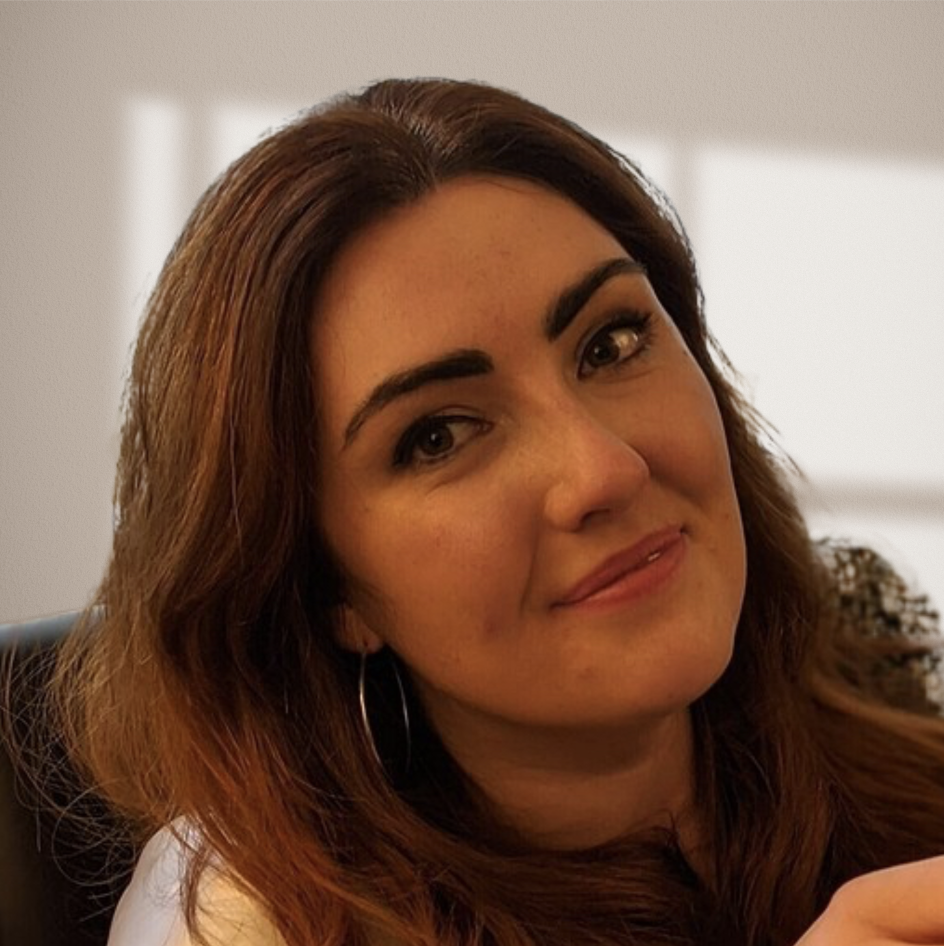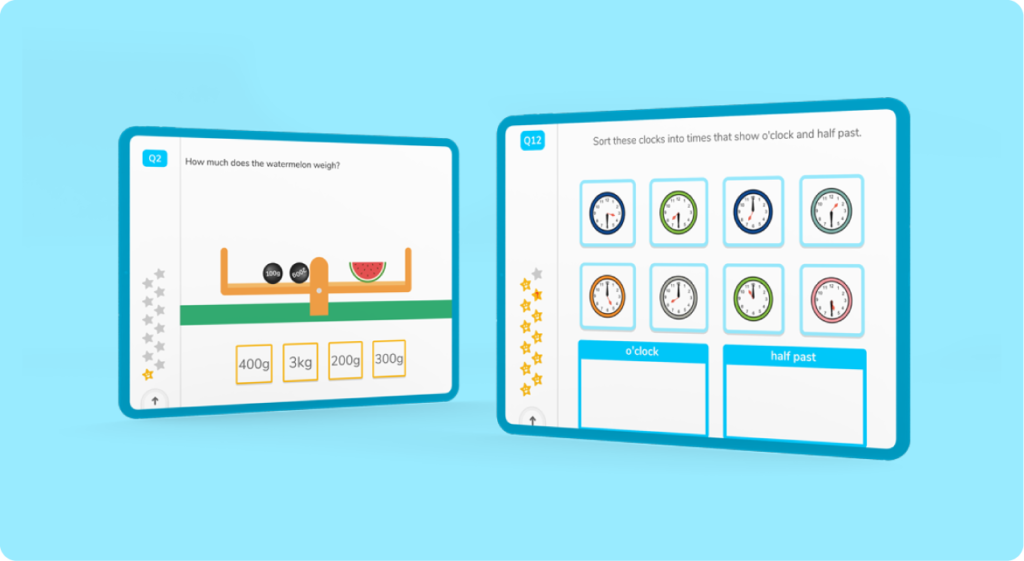

Learn what’s taught in Year 7 maths across the subjects of number, algebra, ratio, geometry, measure, and statistics.

Author
Mhairi Sim
Published
August 2024


Learn what’s taught in Year 7 maths across the subjects of number, algebra, ratio, geometry, measure, and statistics.

Author
Mhairi Sim
Published
August 2024


Learn what’s taught in Year 7 maths across the subjects of number, algebra, ratio, geometry, measure, and statistics.

Author
Mhairi Sim
Published
August 2024


Key takeaways
Table of contents
It’s official – your little learner isn’t so little anymore and they’ve entered the world of secondary school! Year 7 marks the start of their journey into the Key Stage 3 curriculum which they’ll work on for the next three years.
As they progress through the KS3 curriculum, students are taught to develop their maths fluency, fine-tune their ability to reason mathematically, and build their problem-solving skills.
As you can imagine, there’s a lot covered in Year 7 maths so we’ve put together a comprehensive guide of everything you need to know about what’s in store!
There’s no official Year 7 curriculum maths programme as such, but as they follow the KS3 curriculum there is guidance on what they’ll cover. This means that individual schools’ programmes of teaching may vary slightly, but all schools must cover every maths skill listed in the KS3 national maths curriculum by the end of Year 9.
The KS3 national curriculum is broken down into six mathematical themes which are:
Below, we unpack each theme. The specific skills listed under each maths topic align with the sample curriculum framework for Year 7 outlined by the NCETM (National Center for Excellence in the Teaching of Mathematics) in partnership with the Department for Education.
Unlock unlimited maths questions
Put your skills to the test with fun exercises + maths games that are proven to boost ability!
Year 7 learners will be familiar with the concept of number from their primary school learning. They’ll use their understanding of place value, decimals, measure, factors, and multiples frequently, so it’s important they’re comfortable here.
Throughout the Year 7 maths curriculum they’ll go a step further in exploring more complex number concepts such as:
What was known as the four operations at Key Stage 2 (multiplication, division, addition, and subtraction) becomes arithmetic procedures at Key Stage 3.
Here learners will build their working knowledge of a range of calculation strategies for adding, subtracting, multiplying, and dividing. They should be able to apply these calculations to fractions and work across corresponding fractions and decimal numbers.
Algebra is introduced in Year 6 maths so it won’t be entirely new to Year 7 maths students. That said, many learners still struggle with this maths concept!
In Year 7, students will learn:
DoodleMaths is an award-winning maths app that’s aligned to the Year 7 maths curriculum and proven to double a child’s rate of progression with just 10 minutes of use a day!
Filled with fun, interactive questions covering the whole curriculum, it creates each child a unique work programme tailored to their needs, boosting their confidence and skills in maths. Try it for free today!

Ratio and proportion are concepts that Year 7 maths students have come up against before. This year they’ll primarily work with multiplicative relationships (how numbers are linked by multiplication).
Following the Year 7 maths curriculum, they’ll develop their understanding of fractions and ratios as examples of multiplicative relationships. Learners will also learn how to apply this concept in a variety of mathematical contexts.
In Year 7, students will continue the work they’d started in Year 6 working with coordinates. They’ll use their existing knowledge of plotting coordinates across four quadrants to develop their understanding of how coordinates, equations, and graphs are connected.
From this, they’ll then move on to the topic of transformations where they’ll demonstrate how to rotate, reflect, enlarge, and translate a shape across a quadrant grid.
Finally, Year 7 students will use their understanding of perimeter and area from KS2 to solve more challenging geometry questions.
Some students may touch on the topic of probability in Year 7 in the form of simple probability experiments such as rolling a dice or flipping a coin. Once they’ve conducted a probability experiment, they are encouraged to record their results and comment on the frequency of outcomes.
Although this topic is not included in the Year 7 curriculum maths programme, many schools may include this since it’s a great opportunity to get familiar with the vocabulary of probability.
Like probability, there is no specific inclusion of statistics in the sample Year 7 maths curriculum. However, many schools still choose to cover an element of statistics over the course of the year.
In Year 7, students could be asked to work with statistics in a range of ways, including:
Try DoodleMaths for free!
Select a year group
After a busy year of assessments at the end of KS2, both you and your kids will be glad to hear there are no formal exams included in the Year 7 maths curriculum!
Some schools may conduct class assessments to check a learner’s understanding at the end of a maths topic. These are informal assessments used as a tool by teachers to identify if students are ready to move on to the next topic.
One of the best things I’ve found that parents can do for their Year 7 students is to establish a routine for homework early on in the year. Chances are, your kiddos will be assigned maths homework at least once per week, so setting aside dedicated time for them to tackle this is a must!
Making sure they’ve got a dedicated space to do their homework can be a great help here. If you have the room, setting up a homework station is a brilliant way to ensure they’ve got everything they need in one place and can help to keep procrastination to a minimum!
It’s totally understandable that many parents might start to feel a little out of their depth in trying to help Year 7 learners out with maths. To be totally honest, even after years of teaching it can still take me a minute to get my head around some of those trickier algebra and geometry concepts!
Thankfully our DoodleLearning maths app is on hand to help! The app is jam-packed with thousands of interactive games and activities that help learners practice new KS3 skills. The activities are fully aligned to curriculum standards and will target individuals’ learning needs with a personalised programme!
Or try practising with these year 7 maths questions.
There’s a lot of change happening for our Year 7 students so it can be a stressful year for some! Knowing the curriculum and using the tips above are great ways to help your learner as they navigate this next stage of their learning.

Parents, sign up for a DoodleMaths subscription and see your child become a maths wizard!

Lesson credits

Mhairi Sim
Mhairi is an experienced teacher, freelance writer and parent. After completing her bachelor's degree in Psychology, she graduated as a teacher from the University of Strathclyde. She then built experience teaching across KS1 and KS2 throughout the UK. In addition to working in mainstream education, Mhairi specialised in the additional support needs sector, including social, emotional, and behavioural support.

Mhairi
Mhairi is an experienced teacher, freelance writer and parent. After completing her bachelor's degree in Psychology, she graduated as a teacher from the University of Strathclyde. She then built experience teaching across KS1 and KS2 throughout the UK. In addition to working in mainstream education, Mhairi specialised in the additional support needs sector, including social, emotional, and behavioural support.
Book a chat with our team
If you’d like to use Doodle’s browser version, please visit this page on a desktop.
To log in to Doodle on this device, you can do so through our apps. You can find out how to download them here: